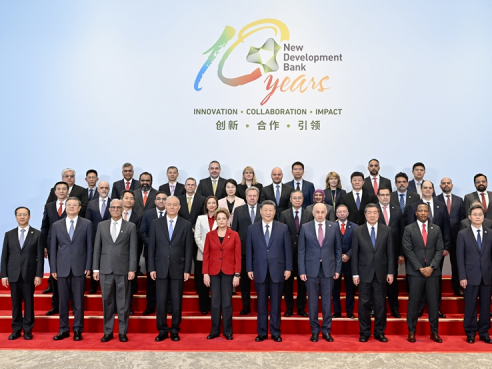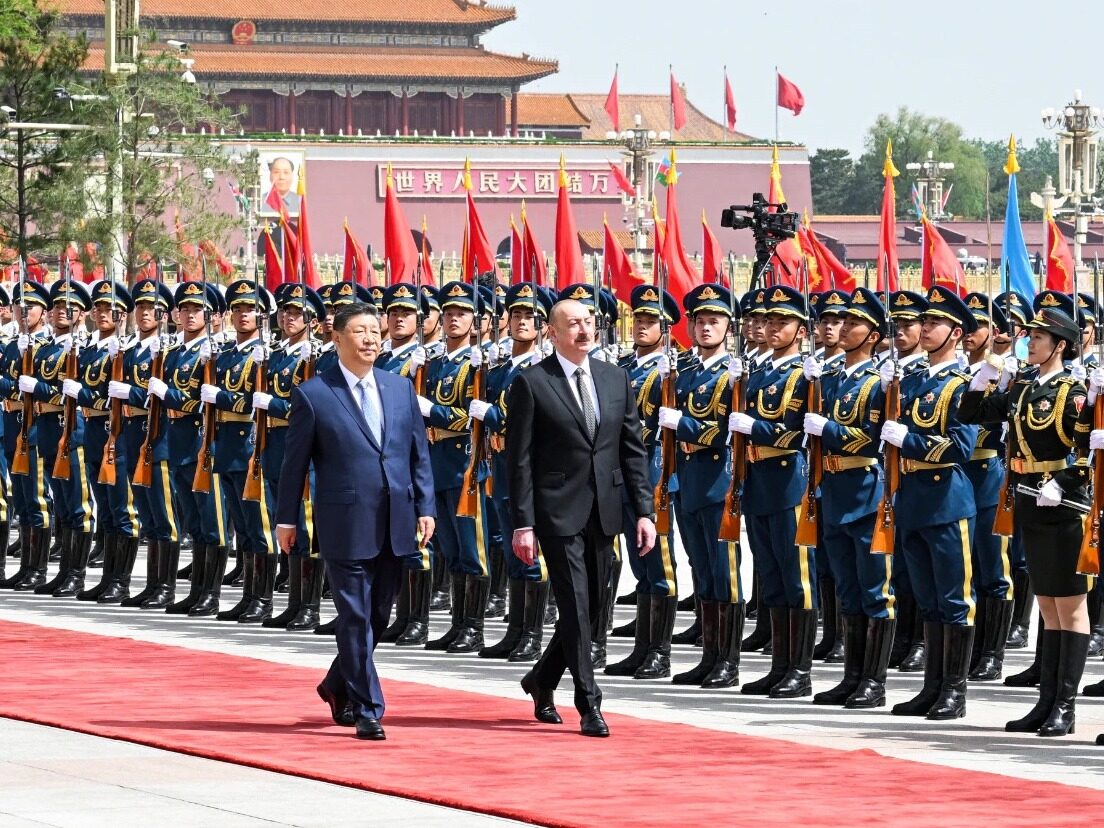- Russia has unique advantages in hydrogen energy development and will accelerate the pace of energy transition

A few days ago, Russian Prime Minister Mikhail Mishustin approved the national hydrogen energy development concept, which will develop the hydrogen energy industry in three stages. The first stage is from now to 2025. A hydrogen energy industrial cluster integrating production and export will be built and pilot projects will be implemented, while developing the domestic market. The second and third phases (to 2035 and 2050 respectively) are aimed at building an export-oriented hydrogen energy industry and widely using hydrogen energy technology in the national economy. Russia's hydrogen energy development will enter the fast lane.
Russian scholars believe that the driving force for the development of the hydrogen industry in Russia mainly comes from the transformation of the consumer market. It not only has many advantages in resources, infrastructure, and markets, but also faces insufficient technology, green hydrogen (renewable energy hydrogen production) raw materials, and the development of the hydrogen industry is affected by exports. Challenges such as greater influence of market preferences.
The transformation of the consumer market forces Russia to push hydrogen energy development
"If there is no challenge from energy consumers, especially from European consumers, it is difficult for hydrogen energy to get such a big boost in Russia." said Alexander Kurding, an expert at the Analysis Center of the Government of the Russian Federation. In the past two years, oil and gas resource country Russia has frequently issued policy plans to promote the development of hydrogen energy, and hydrogen energy has ushered in a leap-forward development. In addition to the hydrogen energy development concept just released, in June and October 2020, Russia successively released new versions of the "Energy Strategy to 2035" and "Hydrogen Energy Development Roadmap for 2020-2024", making hydrogen energy a key development in the energy industry. One of the directions is the plan to be led by Gazprom and Russian Atomic Energy to establish a comprehensive hydrogen energy industry chain in Russia by 2024.
Stetsenko, a professor at the Russian Higher School of Economics, also believes that the acceleration of the development of hydrogen energy in Russia is mainly affected by the transformation of the consumer market. The European Union is Russia's largest energy consumption market, and it is also the most active international actor in the low-carbon transition. The European Union issued the "European Green Agreement" and "European Hydrogen Energy Strategy" in 2019 and 2020 respectively. It regards hydrogen energy as an important starting point for achieving net zero emissions, and plans to promote the production, transportation and consumption of hydrogen energy. Demand for natural gas in Europe has fallen. As Mishustin said at the business meeting, the development of hydrogen energy can reduce the risk of Russia losing its energy market. Under the trend of global energy transition, Russia's economic model of relying on oil and gas exports may be unsustainable. By using natural gas to produce hydrogen, it has become the world's major exporter of hydrogen energy, and relying on hydrogen energy to guarantee the income of oil and gas exports in the past has become Russia's main concern. "Europe will eventually realize the transition to hydrogen energy. The sooner Russia participates in the hydrogen energy development process, the more likely it is to get economic returns from it," said Stephenko. Anatoly Chubais, the Russian President’s Special Representative for Sustainable Development, predicts that by 2030, Russia will earn at least US$20 billion to US$30 billion in revenue by exporting hydrogen to the European Union.
The EU's recent climate energy policy has strengthened Russia's determination to export low-carbon energy such as hydrogen. In July of this year, the European Commission put forward a proposal for a climate energy package including a carbon border adjustment mechanism, encouraging EU trading partners to reduce the carbon intensity or carbon footprint of exported products, and will impose a carbon emission fee on product exporting countries in 2026. Boston The consulting company predicts that if the carbon tax is US$30 per ton of carbon dioxide, Russia will lose US$3.1 billion to US$3.8 billion per year.
Russia has many advantages in developing hydrogen energy
In terms of hydrogen energy development, Russia is ambitious, determined to become a leader in the global hydrogen energy market, and has set a goal of having 20% of the global hydrogen market by 2030. It is estimated that by the middle of this century, Russia's hydrogen supply will reach 15 million to 5000 Million tons. Alexander Kurding said that the EU proposed a carbon border adjustment mechanism to transfer the financing pressure for the development of renewable energy to oil and gas exporting countries. In view of the resource and technological foundation, Russia proposed a blue hydrogen (hydrogen production from natural gas) development plan as a countermeasure. In the development of hydrogen energy, Russia has many advantages such as resources, infrastructure, and markets.
First, Russia has abundant natural gas reserves and low cost of hydrogen production. According to the development concept, blue hydrogen will become the priority direction of Russia's hydrogen production by 2035. According to the International Energy Agency, the cost of producing green hydrogen is US$2 to US$7 per kilogram, and the cost of blue hydrogen is only US$1.6 per kilogram. Second, Russia has a well-developed natural gas pipeline network. The hydrogen industry is similar to the natural gas industry. There are more than 170,000 kilometers of gas pipelines, 700,000 kilometers of gas distribution pipelines, and more than 20 underground gas storages in Russia. It is one of the countries with the most developed natural gas pipeline network in the world. In the future, Russia will export tens of millions of tons of hydrogen to Europe and Asia through the long-distance natural gas pipeline network. The hydrogen blending ratio of Beixi Line 2 under construction can reach 70%.
Finally, Russia has a market advantage. Europe and Asia are the main global hydrogen export markets. The geographical advantages and mature natural gas trade relations close to Asia and Europe give Russia an advantage in exporting hydrogen energy to the above two markets. Russia also proposed the construction of three production clusters in the northwest, east and Arctic in the "Concept" for the target market. Among them, the eastern cluster faces Asia, and the northwest cluster faces Europe, and will work to reduce the carbon footprint of export-oriented enterprises.
Under the challenge, Russian energy companies have successively introduced hydrogen energy business layout
At present, the total annual hydrogen consumption in the world is about 72 million tons, of which Russia's hydrogen production is only 5 million tons, which accounts for a small proportion. Russia relies on the export of hydrogen energy to guarantee its income, and it mainly faces the following four challenges: First, Russia's hydrogen energy industry is export-oriented. Russian industry, enterprises and residents lack a strong internal demand for hydrogen, and the development of hydrogen energy is aimed at exporting. Under this circumstance, the development of the Russian hydrogen industry is easily affected by changes in the preference for hydrogen types in the target market. For example, in the long run, with the rapid increase in EU green hydrogen production capacity, Russia's blue hydrogen and purple hydrogen (hydrogen produced by nuclear power) may eventually be squeezed out of the European market. In the near term, the European carbon border tax may minimize the cost advantage of Russian hydrogen, and the Russian hydrogen energy industry cannot obtain the expected revenue. The second is that Russia's green hydrogen cannot be exported in the short term. Russia has no resources or motivation to provide green hydrogen to the EU in the short term. Green hydrogen must be obtained through electrolysis of water, wind and solar power generation, and biomass combustion. Although the goal of achieving green hydrogen is announced in the concept, the proportion of renewable energy sources in Russia's power generation structure, which is the raw material for hydrogen production, is very small. Moreover, the production of blue hydrogen in Russia is more cost-competitive than green hydrogen. The third is hydrogen transportation technology to be studied. Russia plans to use the existing natural gas pipeline network to transport hydrogen to Europe, but the pipeline network still faces a number of technical difficulties. Vladimir Litvinenko, president of the Saint Petersburg University of Mining and Technology, said that the stress corrosion of hydrogen poses a challenge to hydrogen mixing in the natural gas pipeline network. Due to stress corrosion, Gazprom has replaced more than 5,000 kilometers of large-caliber natural gas.
Keywords: hydrogen energy, foreign engineering project information
Although there are many challenges, Gazprom, Russian Atomic Energy, Novatek and other companies have successively announced the layout of hydrogen energy business. "These companies can produce hydrogen on a large scale and export low-carbon hydrogen to the European Union and the Asia-Pacific market. They are the beneficiaries of the development of the Russian hydrogen energy industry." said Igor Bashmakov, director of the Russian Energy Efficiency Center. The Russian Atomic Energy Company will build a pilot hydrogen-powered train in 2024. Gazprom will study the use of hydrogen and methane hydrogen fuel in gas turbine engines and gas boilers, and the application of hydrogen as a power fuel in various transportation vehicles. Novatek announced that it will start commercial blue hydrogen production and CCS projects on the Yamal Peninsula within five years, and will build a wind power plant with an installed capacity of approximately 200 MW locally to develop the green hydrogen industry.Editor/Baohongying
Comment
 Praise
Praise
 Collect
Collect
 Comment
Comment
 Search
Search














Write something~